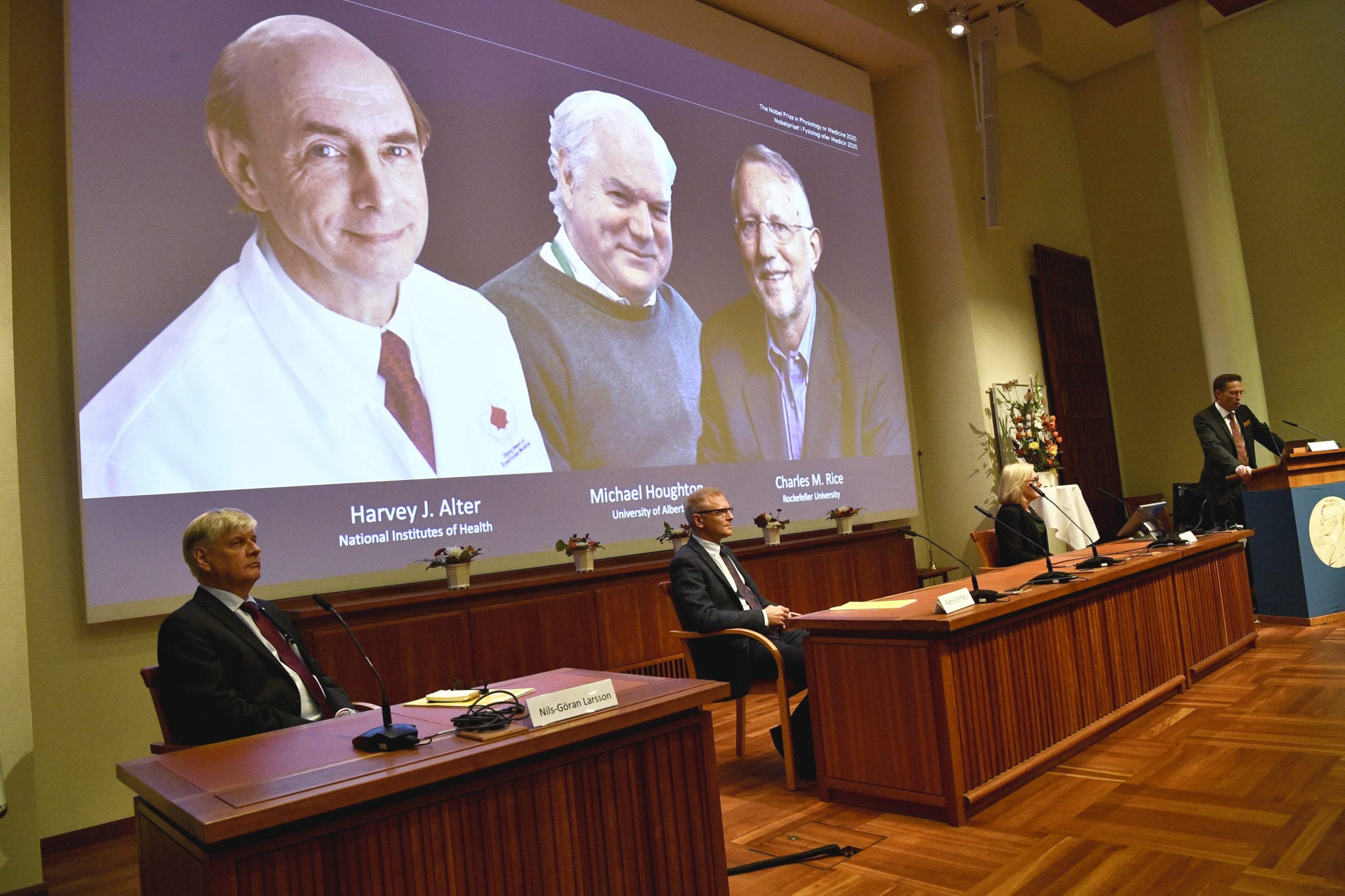
Three scientists win Nobel Prize in Medicine for work in discovering hepatitis C virus
Monday marks the start of Nobel Prize week, and the Swedish committee kicked things off by handing out the first award to three virologists.
Harvey Alter, Michael Houghton and Charles Rice have jointly won the Nobel Prize in Physiology or Medicine for their work on the discovery of the hepatitis C virus. Their research provided the foundation for testing and antivirals that can help those infected receive treatment, as well as a potential vaccine for the liver disease.
Unlock this article instantly by becoming a free subscriber.
You’ll get access to free articles each month, plus you can customize what newsletters get delivered to your inbox each week, including breaking news.